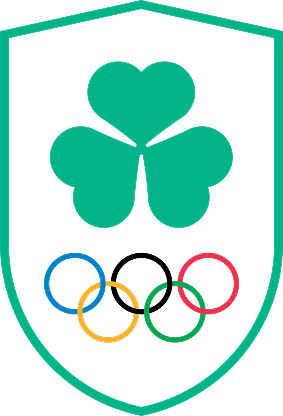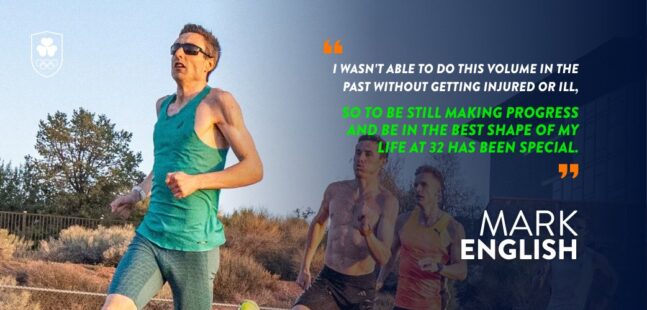
ANY Irish athlete who has ever been frustrated by the inference of an age-limit on their progress or career is surely admiring the thrilling form of Donegal’s Mark English this Summer. There has never been any doubt about the Letterkenny half miler’s talent.
Thirteen years ago he was fifth in the World Junior 800m final and has since amassed five European medals – two outdoors, three indoors – with the latest a bronze on the boards in the Netherlands in March. Most of them were achieved while studying medicine and working as a doctor and his longevity – he reached Olympic and World Championship semi-finals in the last two years – has only underlined the old adage that ‘class is permanent’. Running two laps in under one minute and 45 seconds was always the world-class barometer for two laps and last year, at the age of 31, English ran sub-1:45 three times and lowered his Irish record to 1:44.53.
But since turning 32 in March he has got even faster.
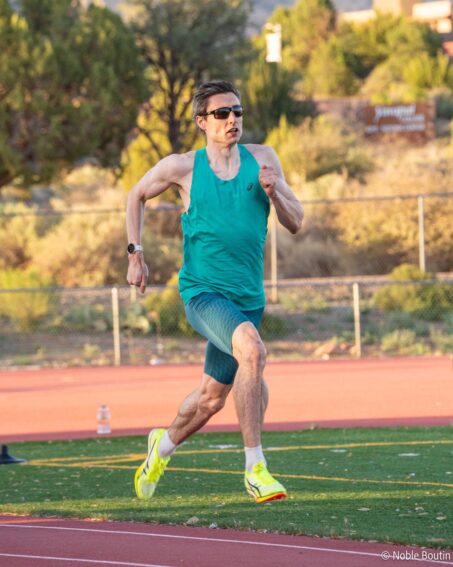
“It’s a combination of lots of things,”
He has doubled his training load, hooked up with a new coach (Justin Rinaldi) last November, got to train alongside some world-class contemporaries and taken the Australian’s advice on altitude training, which he had rarely utilised before.
“I used it a little bit back in 2016 with an altitude tent (in Ireland), and I came here to the Sierra Nevada in 2018 as well,”
he explains, speaking from his latest solo spell up at 2,300m in the mountains of Andalucia.
“I spent about a month in Flagstaff (Arizona) in April-May. Initially it was a convenience thing as it allowed me to train with Justin and his group out there but it was also really beneficial to my outdoor season starting so well in May-June.
“That’s a real key part of the season to get right because when you run well early, it opens up doors for you.
“If you run a fast time in May it’s up online and people are talking about it and it really helps you get invites to high quality races later in the year. That’s how track meets works.”
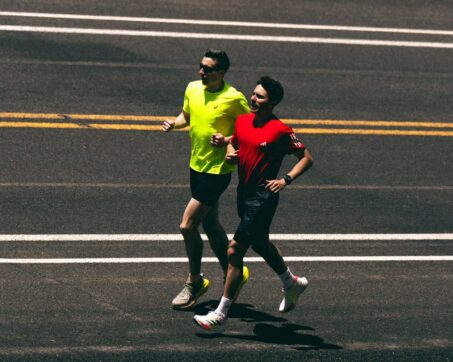
The principles of altitude training have not dramatically altered since it first became popular in the wake of the high altitude Olympic Games in Mexico in 1968.
By training ‘high’, where the air pressure and oxygen levels are lower, the body responds by increasing the production of erythropoietin (EPO) and more red blood cells. This helps to increase blood oxygen, VO2 Max (the amount of oxygen a body can consume during training) and the time and intensity of training when returning to sea level.
What remains variable is how different metabolisms respond to it and the optimal timing of altitude training before racing.
“Training is much tougher for sure at altitude. It takes longer to recover, especially when you’re ageing, so you need to factor that in when you’re going up.
“It is very individual and everyone needs to figure it out for themselves, especially the timing in relation to competitions. It’s hard to fit it in around all your races and the timing of your major goals during a season.”
English still largely operates as a lone wolf at home, training on several public tracks around Dublin.
But there is no doubt that working online with Rinaldi (whom he initially contacted through social media) and getting some training alongside his athletes like Josh Hoey (this year’s World Indoors 800m champion) has contributed to this remarkable form.
“I’m in the sport long enough to kind of know what I’m doing but it’s specific workouts and sequencing out of the weeks that Justin has been really helpful with.
“I obviously want to drive on as much as I can at certain points, but that’s not always the helpful thing to do. He’ll tell me and is always very open with me.
“I wasn’t able to do this volume in the past without getting injured or ill, so to be still making progress and be in the best shape of my life at 32 has been special.”
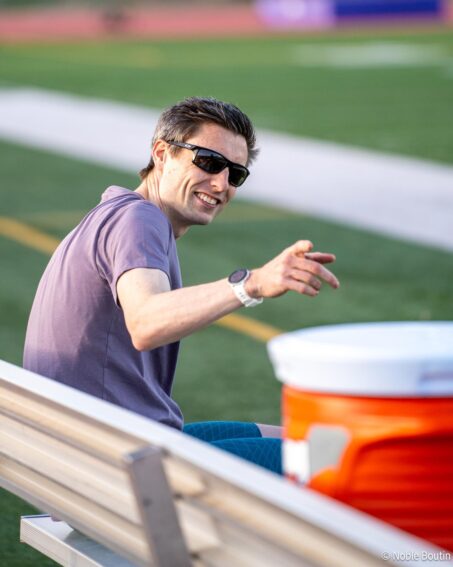
English is currently ranked 18th in the world in an event that keeps accelerating at breakneck speed.
“That’s a good question and I don’t know if I can answer it correctly because I’ve never made a world final,” he replies with trademark pragmatism.
“I’ll talk to Justin because he knows way more about it than me. He has coached Peter Bol to Olympic and World 800m finals and I know he will give me a good plan.
“For me the goal was always to run my fastest time this year, but obviously to make a world final would be brilliant as well.”
